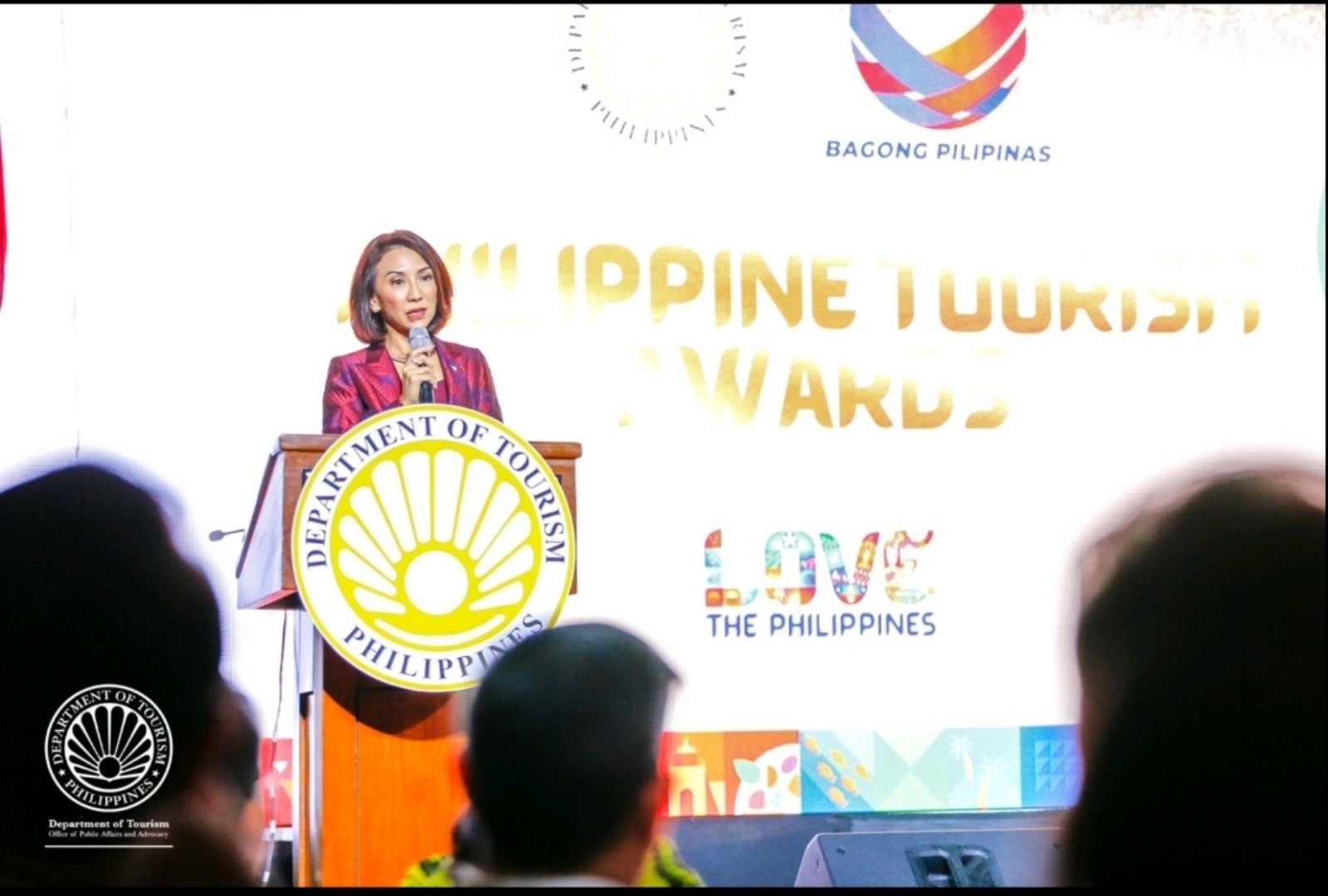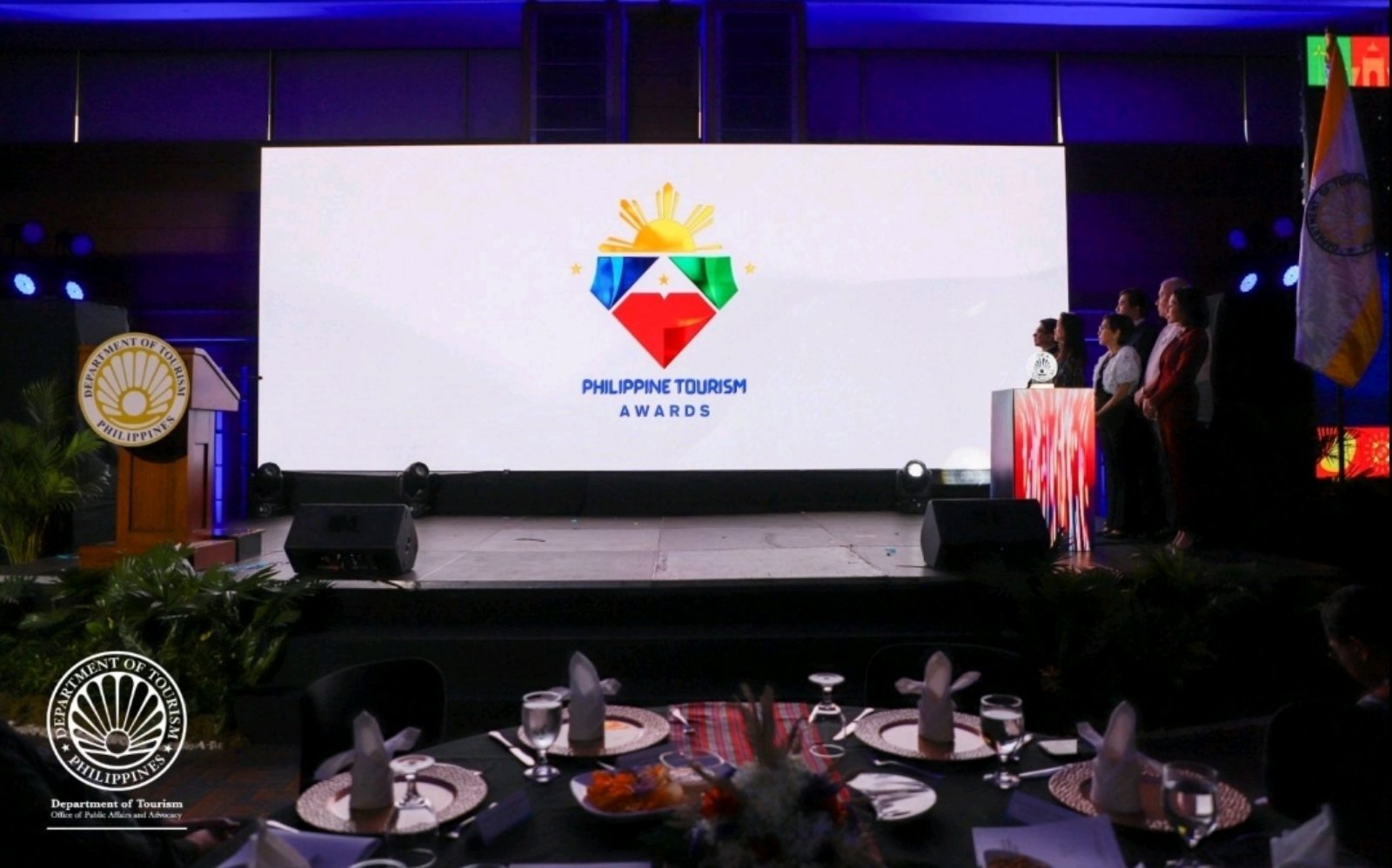

MANILA – The Department of Tourism (DOT) officially launches the revival of the Philippine Tourism Awards (PTA) to honor the excellence and continued support of industry stakeholders, institutions and partners, as well as to encourage friendly competition and further promote excellence in the industry.
During the launching held last Friday at the Philippine International Convention Center (PICC), Tourism Secretary Christina Garcia Frasco said that the awards “aim to give recognition to institutions, individuals, pillars, changemakers, and trailblazers in the various sectors of tourism that have contributed greatly to the fact that tourism is now one of the strongest pillars of our economy–-providing jobs to millions of Filipinos, providing much-needed livelihood and employment in communities across the country.”
“By recognizing these institutions, individuals, and enterprises that have gone the extra mile, overall, we also foster healthy competition among industry players themselves. And as we all know, with competition comes improvement in the quality of overall tourism services,” the tourism chief added.
The PTA is the reinvention of the former Kasama sa Lakbay Kaunlaran ng Bayan (KALAKBAY) Awards and Tourism Star Philippines, conceived to be the pinnacle and most esteemed accolade in Philippine Tourism at its time, paying tribute to the past while recognizing the present and future achievements of the tourism industry as an economic driver.
With this, Frasco said that the PTA is “geared toward strengthening the partnership of the DOT with the stakeholders from the private sector, local government units (LGUs) as well as the media and recognizing their consistent professionalism and support to the tourism industry.”
The program also seeks to honor the efforts of outstanding industry players and LGUs that have demonstrated excellence in promoting and developing the country’s tourism sector.

Photo courtesy of DOT
Two Major Categories
There will be two major categories this year: the Philippine Tourism Pillar Awards and the Philippine Tourism Industry Awards.
According to the DOT, as part of its 50th founding anniversary, DOT will honor tourism industry pioneers and institutions through the Philippine Tourism Pillars Awards, a one-time recognition program in conjunction with the department’s founding anniversary.
The said award “seeks to show appreciation to individuals, enterprises, destinations, and organizations who started it all for Philippine tourism,” the DOT said in a statement.
Entries under “enterprise” must be in continuous operation for 50 years or more; and the “individual” should be someone with a continuous career in the Philippine tourism industry for at least 35 years.
The award shall be open to the public for nominations and be subjected to the validation of the DOT and knowledge partner PricewaterhouseCoopers (PWC).
Meanwhile, the Philippine Tourism Industry Awards will be a periodic national recognition program for both the private and public sectors involved in the development and promotion of Philippine tourism.
The prospective awardees are envisioned to be an embodiment of true Filipino hospitality and a contributor to socio-economic growth and environmental protection. For the pilot implementation, the industry awards will have five categories: institutional, individual, tourism product, media, and special awards.

Photo courtesy of DOT
Sustainability practices and equalization of opportunities in the grassroots level
Secretary Frasco emphasized how important inclusivity is for the industry, emphasizing her experiences as local chief executive before being appointed as tourism chief.
“Notably, these awards will not be just in Manila. We are spreading the good news of recognizing our partners in all our regions in the country, by making the awards both regional and national,” the Secretary said during the inaugural ceremony.
She also emphasized that the set of standards set by the DOT aims to equalize opportunities both for emerging and lesser-known recognitions, as well as to strengthen partnerships with LGUs.
“This local perspective we sought to introduce, because I, myself, come from local government, and I’ve seen for myself that in cities and municipalities, barangays and provinces across the Philippines, there are tourism best practices that are truly worthy of emulation. They may not be as grand a scale as others, but certainly [they] are not lacking in heart and determination. These community-based tourism initiatives, we seek to recognize and acknowledge as well for truly, we can only claim success in the tourism industry if we can uplift not just a few of our destinations but as many as we can,” Frasco added.




